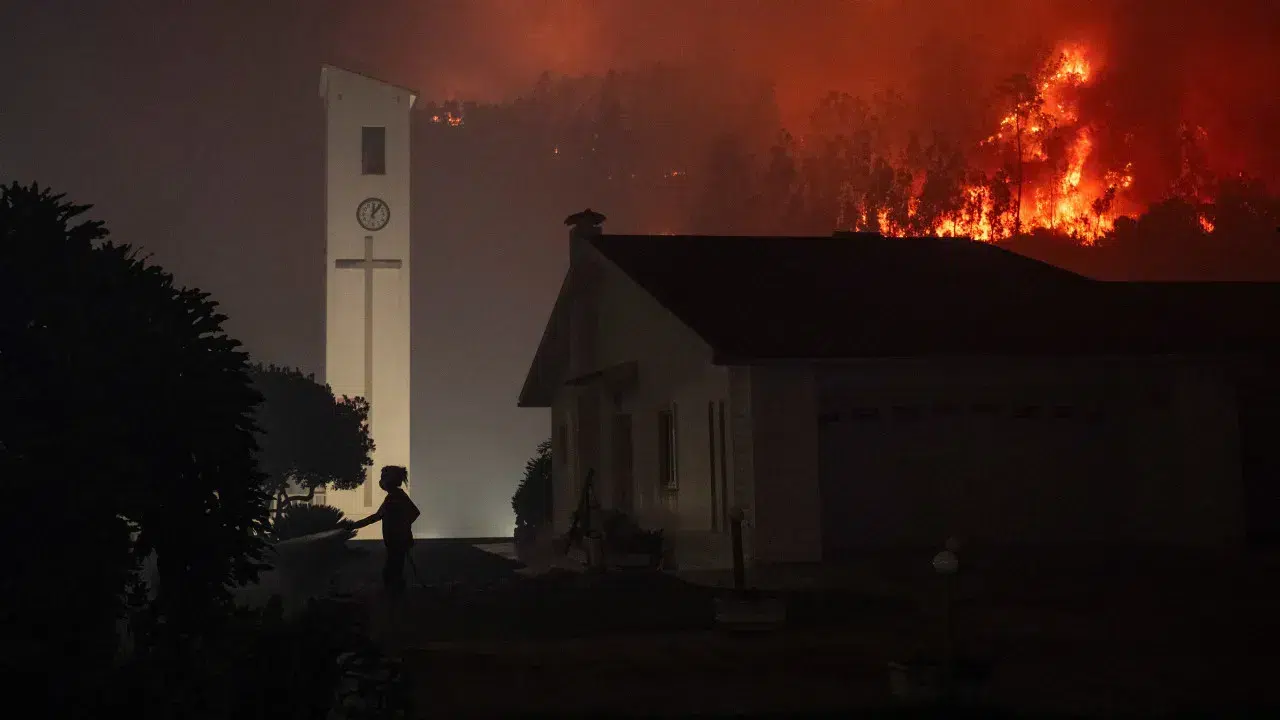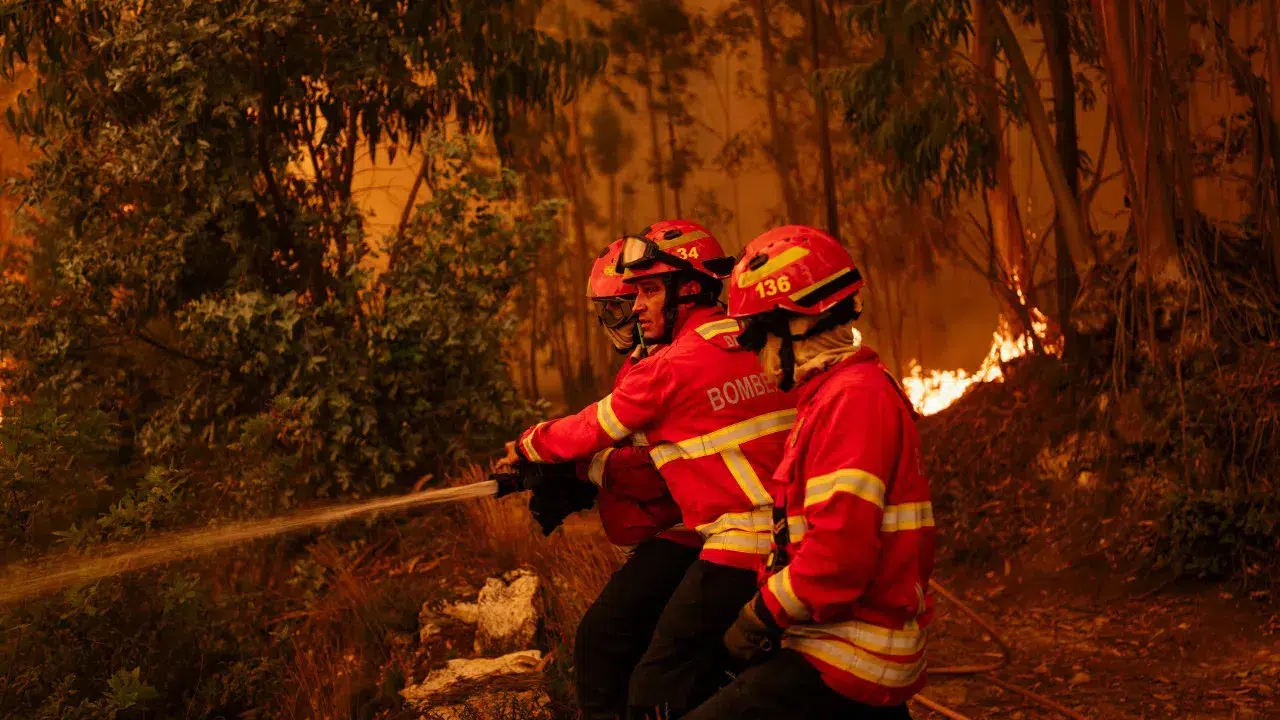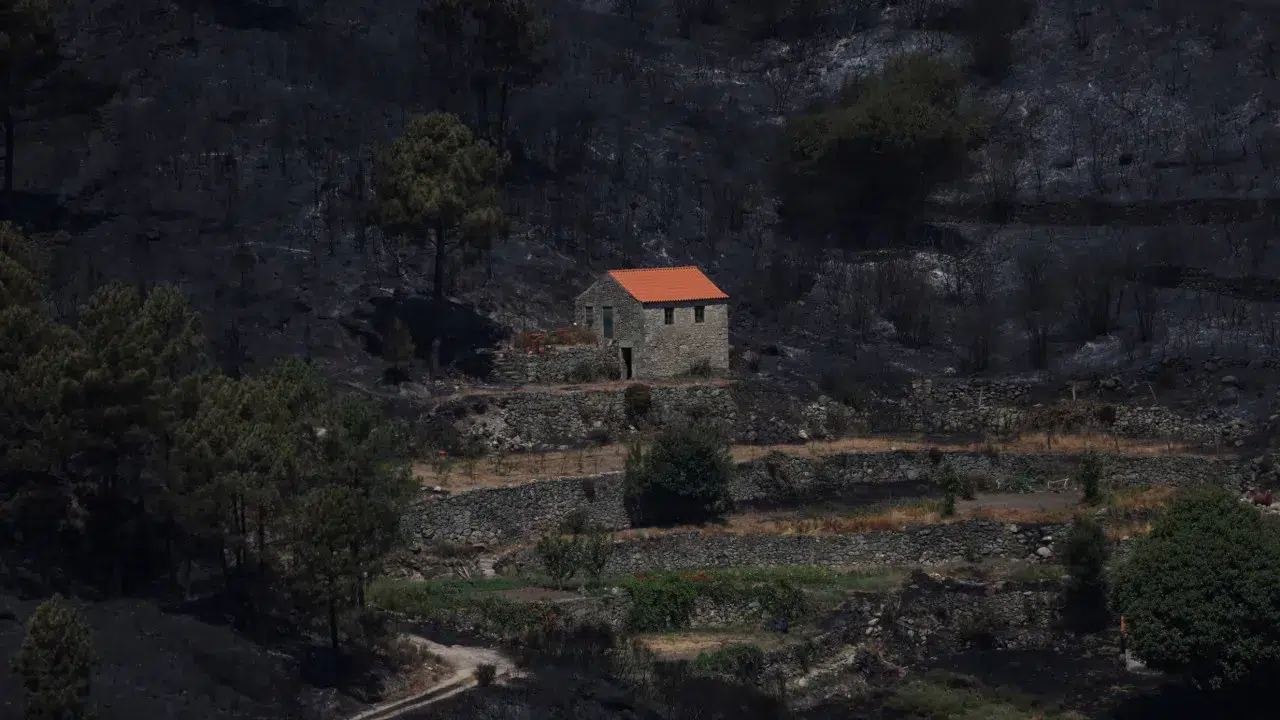
The fire has destroyed all the livestock feed Teresa Assis had stored. The shepherd from Frechas owns 149 sheep, but now she lacks hay for her animals since the fire consumed the “40 large rolls” of straw stored near the barn. “Everything burned. It even started burning inside the barn, but we managed to put it out and now we have no hay,” she shared, adding that she attempted to save the property but was stopped by firefighters due to safety concerns.
Although she managed to secure her flock by grazing them near the river, she expressed profound sadness. “It was completely out of control, a true tragedy, anyone who saw it would feel sorry. Everything burned, it’s sad, I even started crying,” she recalled.
Now she acknowledges the need to “ask for help” for livestock feed, suggesting the government should “purchase hay or seeds” and distribute them to affected farmers. However, she remains pessimistic: “I have a feeling that won’t happen, I never have luck,” she lamented.
It wasn’t only Teresa Assis’ livestock feed that was destroyed. The bees too are now left without food, surrounded by blackened, ashen landscapes, with hundreds not surviving.
José Domingos, president of the Terra Quente Honey and Dried Fruits Producers Cooperative, reported that “about two thousand beehives” burned in the Mirandela fire, which spread to the municipalities of Vila Flor and Alfândega da Fé, as well as in the fire at Freixo de Espada à Cinta, which reached Torre de Moncorvo and Foz Côa.
In his memory, “there has never been such a catastrophe,” highlighting the “serious problems” it poses for beekeepers: “Honey is becoming cheaper, productions smaller, and beehive maintenance costs are rising. Beekeepers were already struggling, and with the burning of hives, the situation worsens,” he said.
Hence, the cooperative is pushing for “competent authorities” to assist beekeepers like Sónia Silva from Freixeda, who lost an apiary to the fire.
When she saw the flames approaching, she managed to save “12” beehives, but was unable to return for the remaining 20.
They were consumed by flames, resulting in significant loss. “If it’s 100 euros per hive, that’s two thousand euros, not to mention the time, expenses, trips, feed, treatment, and stimulants,” she lamented, stressing that she will also have to cover costs for her other two apiaries, as everything was reduced to ashes and the bees lack food.
Therefore, the Mirandela beekeeper calls on the government for “food” or “help acquiring swarms”: “They need to assist us, because this is a disaster,” she stated.
While not considering giving up the activity, she intends to reduce production. “Giving up isn’t for now,” but previously she considered having “200 hives,” a goal she has now abandoned, as “the greater the investment, the greater the loss,” given that while the fire “might not happen next year, it could in two or three years.”
Mirandela, located in the Terra Quente region of Bragança district, is renowned for its excellent olive oil. Vast olive groves, however, did not escape the fire’s destruction. Some producers faced “total losses,” with their “production capacity entirely destroyed,” reported Francisco Pavão of APPITAD – the Association of Integrated Protection Producers of Trás-os-Montes and Alto Douro.
Some farmers are considering abandoning the activity, with certain areas experiencing fires for the “second or third time in the last 30 years,” causing fatigue amongst those who consistently plant only to have “a fire destroy the productions.”
In Trás-os-Montes, olive groves are primarily rain-fed, requiring at least “20 years” for an olive tree to return to peak production potential.
Due to the fire, Francisco Pavão acknowledged that “there will be some impact on olive oil prices, as production will decrease.”
These concerns were communicated today to the municipality of Mirandela during a meeting between the mayor, agricultural associations, and parish council presidents.
Mayor Vitor Correia explained that the objective was to assess the damages in the municipality, which will be reported to the Regional Coordination and Development Commission, subsequently communicated to the government.
Additionally, the municipality established a “crisis” office, opening Monday within the Civil Protection service, where those affected by the fire can seek help to fill out the form for government support.
The Mirandela fire broke out on Sunday and was only declared under control two days later, putting several villages at risk.




